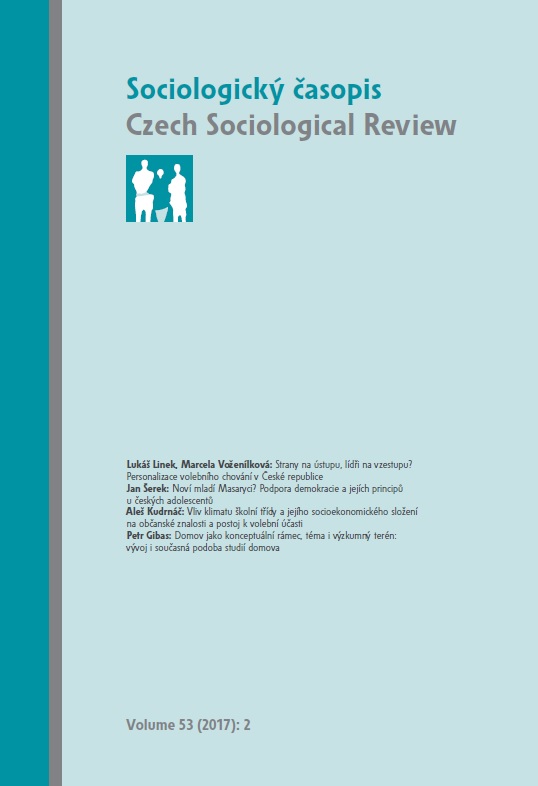Vliv klimatu školní třídy a jejího socioekonomického složení na občanské znalosti a postoj k volební účasti
The Impact of Open Classroom Climate and Classroom Socio-economic Composition on Civic Knowledge and Attitudes towards Voting
Author(s): Aleš KudrnáčSubject(s): Political behavior, Politics and society, Social differentiation
Published by: AV ČR - Akademie věd České republiky - Sociologický ústav
Keywords: inequality; family background; civic knowledge; open classroom climate; voting turnout
Summary/Abstract: Research to date indicates that there is a positive association between the family-based socio-economic status (SES) of students and pupils’ own level of civic knowledge and attitudes toward voting. Many scholars think that social stratification of the electorate may lead to differential political representation of social groups thereby weakening the legitimacy of democracy among the lower social strata who participate least in politics. In this respect, it is often argued that one of the roles of schools is to reduce the difference in civic participation among students coming from families in different social strata. In this vein, this article examines if (a) type of classroom learning operationalised as ‘open classroom climate’ and (b) the socioeconomic composition of the class help to explain differences in students’ level of civic knowledge and attitudes toward voting. The data used in this study comes from the International Citizenship and Civic Education (ICCS) survey of 8th-grade student carried out in 2009. The multilevel modelling results show that the SES of a students’ family does help to explain differences in pupils’ civic knowledge and attitudes toward voting, and this classroom effect is especially strong among low SES students. In contrast, the presence of an open classroom climate has no significant effects on knowledge or attitudes to voting. This article concludes with a discussion of how these findings shape current understanding of how contrasting educational trajectories may have political consequences over the long-term.
Journal: Sociologický časopis / Czech Sociological Review
- Issue Year: 53/2017
- Issue No: 02
- Page Range: 209-240
- Page Count: 32
- Language: Czech

